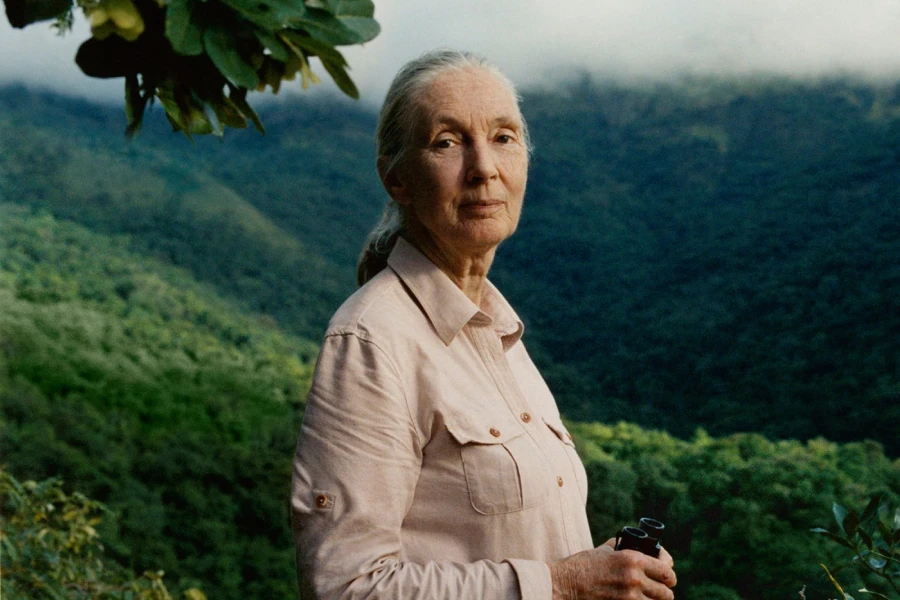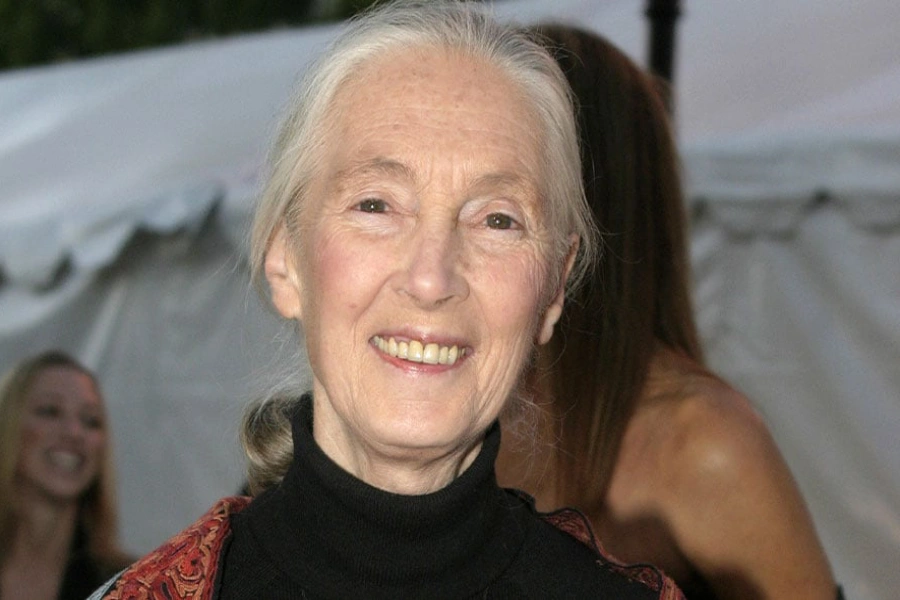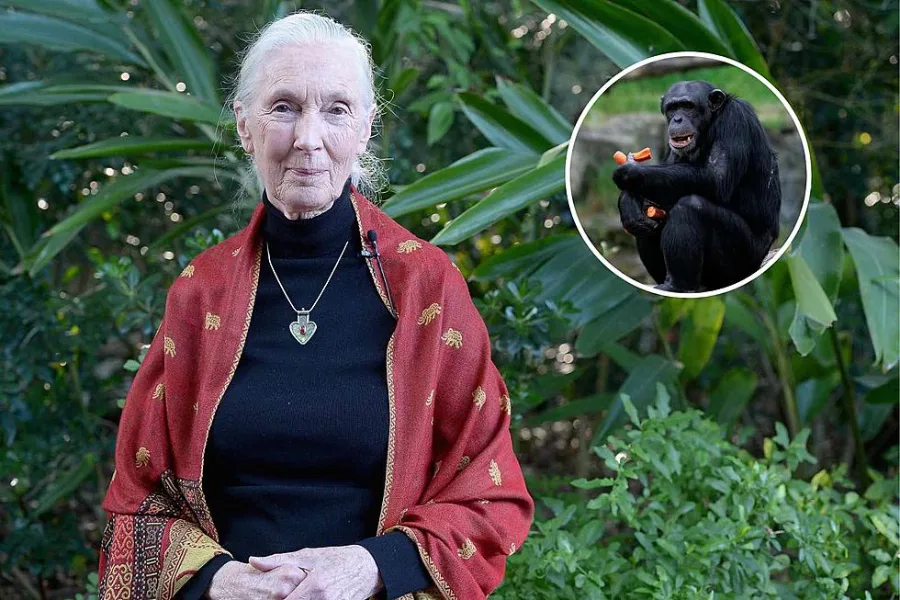Jane Goodall, the world-renowned primatologist, passed away at 91, leaving behind not only groundbreaking discoveries about chimpanzees but also a profound influence on animal rights law and conservation policy. While most people know Jane Goodall for her scientific contributions, her true legacy extends into legal reforms that shaped how nations and international organizations protect animals and the environment.

Jane Goodall and the Animal Welfare Act: Changing Research Ethics
One of the most significant legal areas influenced by Jane Goodall was the Animal Welfare Act in the United States. Before Goodall’s advocacy, primates were frequently subjected to harmful experiments in laboratories. Through her collaboration with organizations like PETA, she highlighted the ethical violations in such practices. Goodall’s testimony and global campaigns led to stricter amendments in the Animal Welfare Act, ensuring better living conditions and limitations on the use of primates in research.
Her work helped redefine the relationship between law, ethics, and science, forcing lawmakers to consider the moral implications of animal testing.
Jane Goodall and CITES: Fighting Wildlife Trafficking Laws
Jane Goodall was also instrumental in raising awareness about illegal wildlife trafficking, particularly the capture and sale of chimpanzees. Her advocacy pressured governments to strengthen international agreements like CITES (the Convention on International Trade in Endangered Species of Wild Fauna and Flora).
Through her foundation, the Jane Goodall Institute, she pushed for the enforcement of anti-trafficking laws and called for harsher penalties against poachers and smugglers. Today, many chimpanzees are protected from global trade thanks to legal structures influenced by Goodall’s activism.
Jane Goodall and the Endangered Species Act: Expanding Legal Protections
In the United States, the Endangered Species Act of 1973 became a crucial legal tool to protect animals such as chimpanzees. Jane Goodall’s research and advocacy were often cited in discussions about why these animals deserved federal protection. By demonstrating that chimpanzees use tools, communicate, and live in complex social systems, she made the case that they deserved legal recognition and stronger safeguards.

How Jane Goodall Shaped Environmental Law Globally
Jane Goodall’s influence went far beyond the United States. She was a leading voice at the United Nations, where she advocated for international environmental treaties. Her work influenced legal frameworks on deforestation, habitat destruction, and climate change. By linking human rights, animal rights, and environmental law, she promoted a holistic approach now adopted by global conservation policies.
Jane Goodall and Women’s Legal Rights in Science
Another overlooked aspect of Jane Goodall’s legacy is her role in advancing women’s rights in the legal and scientific community. In the 1960s, scientific research was dominated by men, and women often lacked legal protections against discrimination. Goodall’s success opened doors for female scientists and influenced policies promoting gender equality in education and research institutions. Her journey became both a scientific and a legal precedent for women seeking recognition in male-dominated fields.
The Legal Fight Against Poaching: Jane Goodall’s Legacy
Poaching laws in Africa and beyond also carry Goodall’s fingerprints. Her continuous warnings about the link between organized crime and wildlife trafficking pushed governments to adopt stricter anti-poaching legislation. Many African nations introduced harsher penalties for ivory and bushmeat trade under the influence of her advocacy. This legal shift has saved countless primates and other endangered species.
Ethical Research Laws and Jane Goodall’s Advocacy
Jane Goodall rejected traditional, detached scientific methods. Instead, she immersed herself in chimpanzee societies, proving they deserved dignity and respect. This approach influenced international ethical research guidelines, requiring that animals be treated as sentient beings. Today, legal codes in Europe and North America mandate humane treatment in field and laboratory studies, a direct reflection of Goodall’s work.
Jane Goodall’s Legal Legacy for Future Generations
The Jane Goodall Institute, founded in 1977, continues to support legal frameworks that protect wildlife and promote community-based conservation. Her concept of linking laws for people, animals, and the environment together has become a model for modern legal reforms. Future generations of lawmakers, activists, and scientists are now using her philosophy to push for:
-
Stronger climate legislation
-
Community-driven conservation laws
-
Expansion of animal rights in courtrooms
Conclusion
Jane Goodall was more than a scientist; she was a legal trailblazer in animal rights and environmental law. From influencing the Animal Welfare Act to inspiring international treaties like CITES and supporting women’s rights in science, her contributions changed not just how we see animals, but also how we legally protect them.
FAQ
Q1: Who was Jane Goodall and why is she important?
A1: Jane Goodall was a world-famous primatologist who revolutionized science by studying chimpanzees in the wild. Beyond her research, she influenced animal welfare laws, anti-poaching regulations, and global conservation policies.
Q2: What laws did Jane Goodall help influence?
A2: Her advocacy impacted the Animal Welfare Act in the U.S., the Endangered Species Act, and international agreements like CITES that protect endangered species from trafficking.
Q3: How did Jane Goodall contribute to animal rights?
A3: She exposed unethical practices in animal testing, fought against the confinement of chimpanzees in laboratories, and promoted legal recognition of animals as sentient beings deserving protection.
Q4: What was Jane Goodall’s role in conservation law?
A4: She linked human rights, animal rights, and environmental protection, influencing international conservation treaties and shaping legal frameworks on deforestation and habitat destruction.
Q5: Did Jane Goodall advocate for women in science and law?
A5: Yes. Her success in a male-dominated field opened doors for women in science, influencing policies on gender equality in research and education.
Q6: What is Jane Goodall’s lasting legal legacy?
A6: Jane Goodall’s legacy includes stronger global wildlife protection laws, ethical research standards, and the inspiration for future generations to continue fighting for conservation and animal rights.

